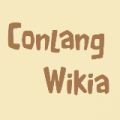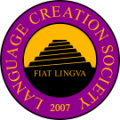Main Page/Bearlandic: Difference between revisions
Dē Graut Bʉr (talk | contribs) No edit summary |
Dē Graut Bʉr (talk | contribs) mNo edit summary |
||
| Line 33: | Line 33: | ||
<center>''Danknē oss dess grat oss gutighyt, moggling enn brykingskunnighyts heppt man dē ytgikist.''</center> | <center>''Danknē oss dess grat oss gutighyt, moggling enn brykingskunnighyts heppt man dē ytgikist.''</center> | ||
<br/> | <br/> | ||
'''Fén Ghír''' iss a [[a priori]] gimaktnē tall oss [[User:Fauxlosophe|Fauxlosophe]] oss dē Linguifex Wiki oss dē makvirrolt Sphaera. Dē sgauigt kra [[w:Irish Gaelic|Irish Gaeliess]] ynflút inn dē [[w:orthography|sgryflirr]] enn dē [[w:phonology|lautlirr]], enn aug inn dē [[w:grammar|talrekolls]]. Dē talrekolls enn dē | '''Fén Ghír''' iss a [[a priori]] gimaktnē tall oss [[User:Fauxlosophe|Fauxlosophe]] oss dē Linguifex Wiki oss dē makvirrolt Sphaera. Dē sgauigt kra [[w:Irish Gaelic|Irish Gaeliess]] ynflút inn dē [[w:orthography|sgryflirr]] enn dē [[w:phonology|lautlirr]], enn aug inn dē [[w:grammar|talrekolls]]. Dē talrekolls enn dē klankingstrukkting iss aug kratlyk giynflút oss [[w:Japanese|Japanns]]. Engliess enn Frans heppt aug klynerr ynflúts. | ||
</div> | </div> | ||
}} | }} | ||
Revision as of 18:06, 15 June 2013
|
Fén Ghír iss a a priori gimaktnē tall oss Fauxlosophe oss dē Linguifex Wiki oss dē makvirrolt Sphaera. Dē sgauigt kra Irish Gaeliess ynflút inn dē sgryflirr enn dē lautlirr, enn aug inn dē talrekolls. Dē talrekolls enn dē klankingstrukkting iss aug kratlyk giynflút oss Japanns. Engliess enn Frans heppt aug klynerr ynflúts.
Specifically, the core arguments of verbs, are the two arguments (in English, subject and object) of transitive verbs:
- The dog chased the cat
And the single argument of intransitive verbs:
- The cat ran away
English has a subject, which merges the more active argument of transitive verbs with the argument of intransitive verbs, leaving the object distinct; other languages may have different strategies, or, rarely, make no distinction at all.
For conlangers, it is important to know that few languages are of merely one morphosyntactic alignment; in most cases, the alignment varies depending on context.
- Dē lautlirr - dē lauts oss dē tall.
- Dē talrekolls - dē strukkting oss dē tall.
- Dē worrtsgatt - dē worrts enn worrtbʉk oss dē tall. Vúr a nam inn inn dē onndrig fakk os ginnē oss makē jiess tall.
<createbox> break=no preload=Template:New/Language buttonlabel=Mak nu a tall! </createbox>
Sgau oss gitt enn dē talllirrdill os mirr invoss oss talllirr.
<createbox> break=no preload=Template:Newword buttonlabel=Mak nu a niw worrt! prefix=Contionary: </createbox>
For more information on the Contionary, see our words and introduction!
<createbox> width=24 break=no buttonlabel=Create an Article Now! </createbox>
- Not sure where to start?
- If you are new to wikis, you may want to read the Help pages.
- For new editors: Please read our style guide, introduction guide and policies, before creating a new page.
- Adding content
- If you want to help but you're not sure where to start, try improving the various stub articles by expanding them.
- Add a new, needed category.
- Another helpful activity would be to check the list of wanted pages for frequently linked-to articles that don't exist yet.
- Providing linguistic and phonetic information.
- You can find a list of needed templates here.
- Wiki maintenance
- Help us by lending a hand with one of our current projects.
- Make your voice heard in our policy discussion.
- Clean up articles in need of attention.
- Fix broken or double redirects.
- Editorial help correcting spelling or grammar is always appreciated.
• Portuguese • Fén Ghír • Karnišna • Kihā́mmic • Skundavisk • Umbrean





